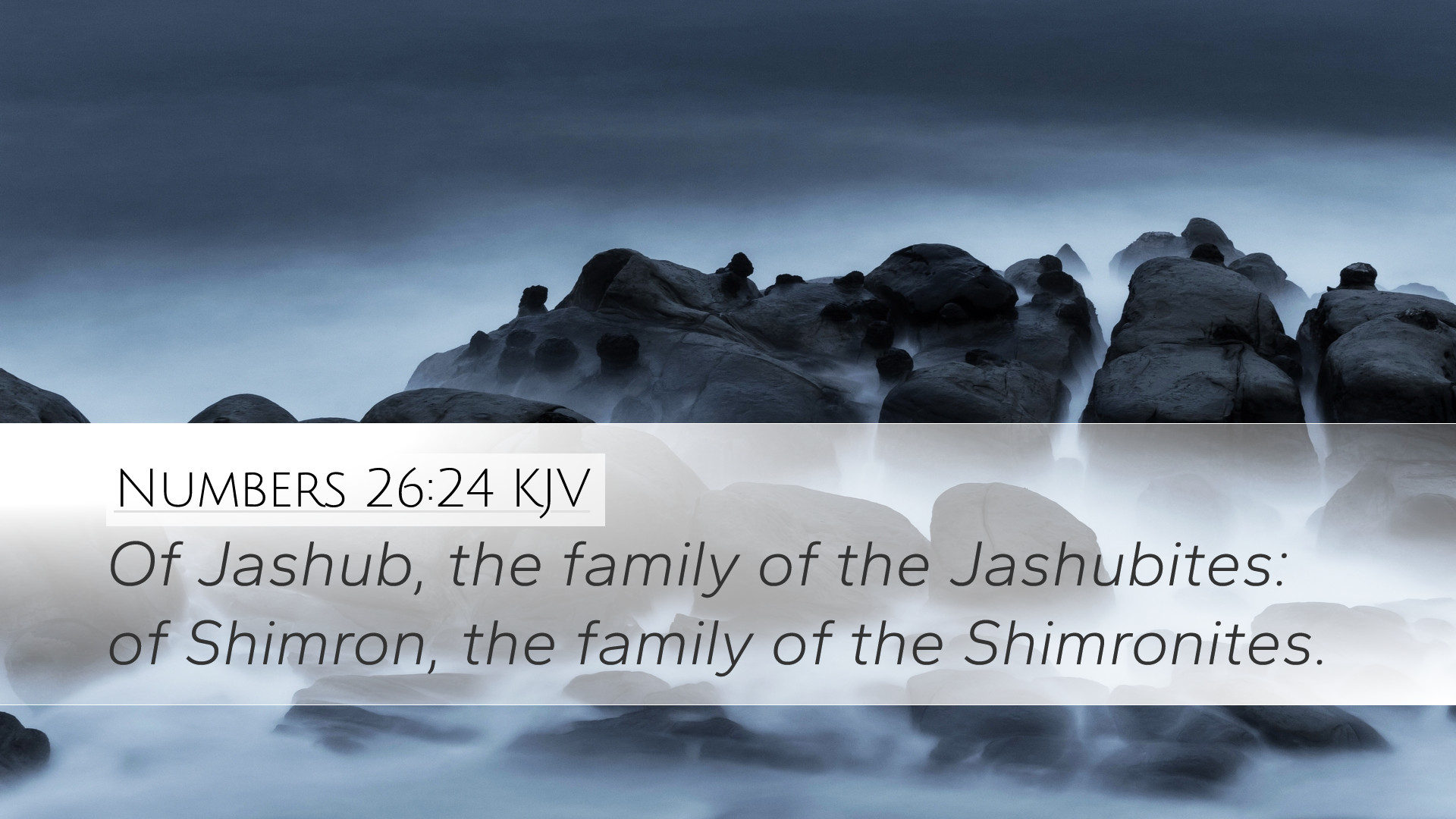Commentary on Numbers 26:24
Verse: "The children of Justin shall be after their families: of the children of Justin, after their families..." (Numbers 26:24)
Introduction
This verse is part of the larger context of the second census of the Israelites in the Book of Numbers. The census serves multiple purposes: to organize the people for military purposes, to confirm the faithfulness of God in preserving a remnant of His people, and to prepare for the distribution of the land of Canaan among the tribes. The specifics in this verse highlight the systematic approach God employs in numbering His people.
Examination of the Text
In Numbers 26:24, the mention of the "children of Justin" refers to a specific lineage that is part of the tribe of Judah. Though there is little detail given about Justin, it is notable that these names hold significant meaning in tracing the history and heritage of the Israelites.
Contextual Insights
This census establishes that the descendants of Justin are acknowledged and counted among the other families. The systematic listing of the families underscores God's meticulous care for each individual, emphasizing that none are overlooked in His divine plan. This reflects a broader biblical theme of God knowing and caring for His people.
Theological Implications
- God’s Sovereignty: The manner in which the scripture lists the descendants signifies God’s sovereignty over His people. Every family name is not merely a lineage; it serves as a reminder of God’s promise to the patriarchs.
- Identity and Community: Understanding one's lineage is critical in biblical times, as it spoke to one's identity within the covenant community. This highlights the importance of community in the life of faith.
- Faithfulness of God: The continuation of families and tribes serves as a testimony of God's faithfulness throughout generations. God's ability to preserve these lineages is a testament to His covenant promises.
Commentaries Overview
Matthew Henry
Matthew Henry, in his commentary, emphasizes the importance of each family being accounted for. He notes how this practice demonstrates God’s ordered nature and His interest in the details of His people's lives. The genealogies act as a reminder not only of physical descent but of spiritual heritage and responsibility.
Albert Barnes
Albert Barnes expounds on how the families mentioned here connect to the overarching story of Israel’s journey. He notes that the families were meant to have distinct identities while also remaining part of the whole nation of Israel. The organization during the census would later facilitate orderly distribution of land. This meticulous approach reflects God’s intentions for governance and leadership among His people.
Adam Clarke
Adam Clarke stresses the significance of leadership and order within the community. He observes that the establishment of family identities is crucial for governance and accountability among the tribes. Clarke also points out the role of such record-keeping in evaluating the faithfulness of the tribes as they prepare to enter Canaan, serving as a reminder of the past while guiding them into the future.
Lessons for Today
Numbers 26:24 encourages readers to consider the importance of legacy and identity within the community of faith. As pastors, students, and scholars, one can glean several lessons from this verse:
- Attention to Details: God’s attention to the numbering of families inspires us to care for each member of the community. No one should be overlooked in our ministry.
- Our Heritage Matters: The genealogies remind us that we are part of a much larger story of faith that spans generations. Recognizing our heritage informs our identity in Christ.
- Community Responsibility: The passage illustrates the collective responsibility within the church body. Just as each family mattered to God, so does each individual matter in the body of Christ.
Conclusion
In summary, Numbers 26:24 serves as an essential reminder of God's order, care, and faithfulness. Through the counting of each family, we see a God who values every individual while calling them to a greater community purpose. This verse not only informs our understanding of ancient Israel's identity but also shapes our current practice in nurturing community and heritage within our churches today.


